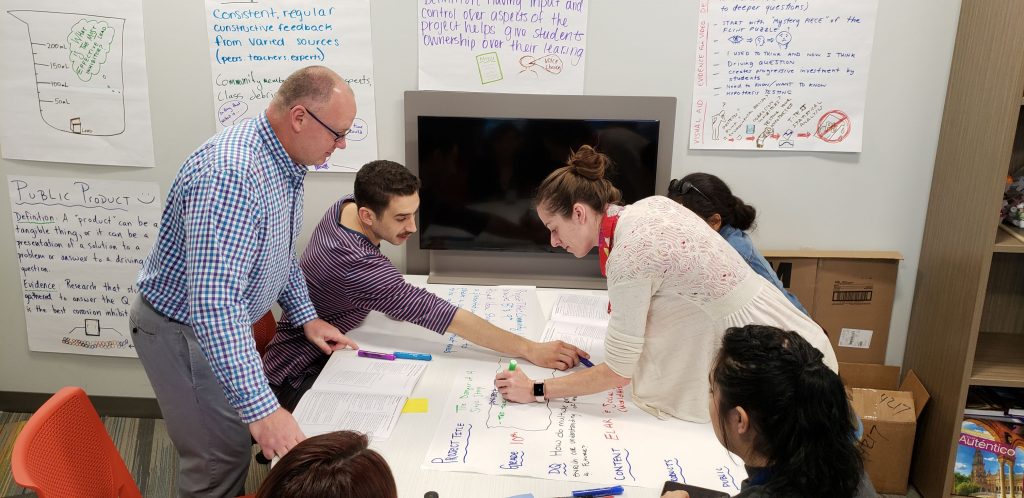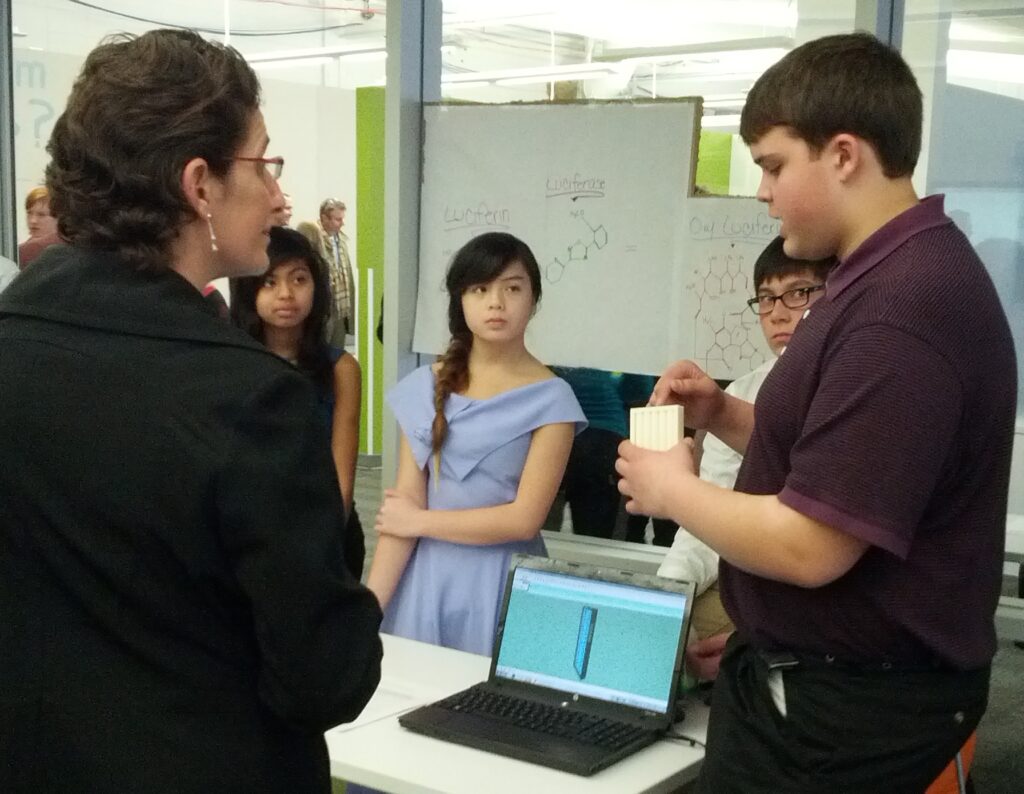I am excited to announce some brand new workshops this summer based off from my upcoming book, The Pulse of PBL: Seamlessly Integrating Social and Emotional Learning! (co-authored with the amazing Matinga Ragatz). Workshops will be offered virtually so any individual in the world can join in from the comfort of their internet hotspot. All workshops are interactive, modeling a Project Based Learning framework and include participants designing a plan to implement in their classroom. My workshops can also be customized for your school and facilitated remotely or in person (I am fully vaccinated).
SEL Infused PBL
July 19-23rd 9:00am – 12:30pm EST Registration & Payment
(Recommended for teachers new to PBL. Space is limited to allow for personal coaching)
Meaningful Project Based Learning focuses inquiry on content and cultivates Social and Emotional Learning skills simultaneously. During this workshop educators will create their own PBL project integrated with SEL competencies by experiencing the PBL process themselves. Teachers from all levels and content areas will partake in a PBL environment full of protocols and structures instantly transferable to any classroom. This hands-on, comprehensive workshop will support teachers to confidently transition to SEL infused PBL inspiring students to change their world.
Transformative SEL: The Pulse of PBL
July 30th 9:30am – 4pm EST Registration & Payment
(1, 2, or 3 day options are available for school workshops. Recommended for teachers with PBL experience. Space is limited to allow for personal coaching.)
With the trauma of the craziness of 2020, educators are paying more attention than ever to Social and Emotional Learning. Many teachers use mindfulness, yoga, and other exercises to help students focus, but these tools focus primarily on self-control and behavior management. The SEL competencies encompass so much more! Discover how to teach, practice, and assess ALL of the CASEL competencies in this hands-on workshop. SEL is the Pulse of PBL: the energy running through the veins of a project that gives life to PBL and develops students into self-reliant learners. Using a Project Based Learning framework, each participant will develop a personalized plan to cultivate all of their students’ SEL skills.
SEL Experiences and Options for School PD:
All of the SEL workshops address common myths about SEL, best practices of SEL implementation, and how to teach, practice, and assess SEL within a Project Based Learning framework. Although ideally suited for PBL, the SEL strategies can be implemented in any K-12 classroom. Each participant will complete a personalized SEL plan for their students. Multiple day SEL workshops allow groups to add the following optional add-ons and focus areas:
- Transformative SEL: Transformative SEL means that students don’t just practice CASEL competencies in a sterile environment, but address issues of justice and equity. Projects should be culturally responsive and scaffolded for all learners including special education and English Learners. Design powerful SEL experiences bent toward justice in the community.
- Extreme Project Makeover: Bring an old project, stale unit, or a new idea that you want to revamp for maximum impact. Share previous successes and challenges of SEL in your classroom. Integrate the SEL competencies with new protocols to develop a personalized plan to cultivate ALL of your students’ SEL skills.
- Focus on 1 Core Competency: CASEL organizes SEL into 5 core areas: Self-Awareness, Self-Management, Social Awareness, Relationship Skills, and Responsible Decision-Making. Tailor your workshop for a deep dive into specific strategies of one or more of these competencies.
- Developing Oracy and Public Speaking Skills: Students don’t show up to your class as natural experts in Relationship Skills. They need to be taught SEL skills such as how to communicate effectively with their team and how to effectively share their ideas with the world. Discover specific strategies to improve student dialogue around controversial issues, negotiating group conflicts, and presenting their ideas publicly.
- Community Partnerships: PBL and SEL need to be seated in authentic contexts. Take your projects to a higher level with community partnerships to engage in local issues. Explore how partnerships in the community motivate students to practice SEL skills in meaningful problems with local experts.
- Classroom Culture & Community: Launching into SEL and/or PBL for the first time can seem daunting. Experience proven structures and techniques to successfully establish classroom culture from the start of the year that encourages students to actively engage in tasks, take risks, and come together as a learning community. Individually or as a school team, design a plan for the opening weeks of school.
- Project and Group Management: Responsible Decision-Making leads to work done efficiently and on-time. Discover specific tools and practices to help facilitate projects in the classroom. Roleplay common scenarios and practice using tools that teach students to problem solve and manage themselves, their teammates, and the project work.
- Leadership Through Service Learning: Brainstorm and plan a PBL project around specific needs in the community. Apply Transformative SEL and Community Partnerships to cultivate student leadership by investigating and tackling tough local problems to improve citizen’s lives.
- Assessing SEL: Educators understand that if learning is important, it needs to be assessed (but not necessarily graded). Design a plan to effectively assess the different competencies throughout a project with an emphasis on goal-setting and personal growth.
- Extended Work Time with Personalized Coaching: Multiple day workshops allow further time for planning SEL implementation of the strategies experienced in the workshop to teacher’s classrooms. During group work time, personalized feedback and coaching is provided.
Questions? Would you like to chat about customizing for your school? Connect with me at michaelkaechele.com or @mikekaechele on Twitter.



